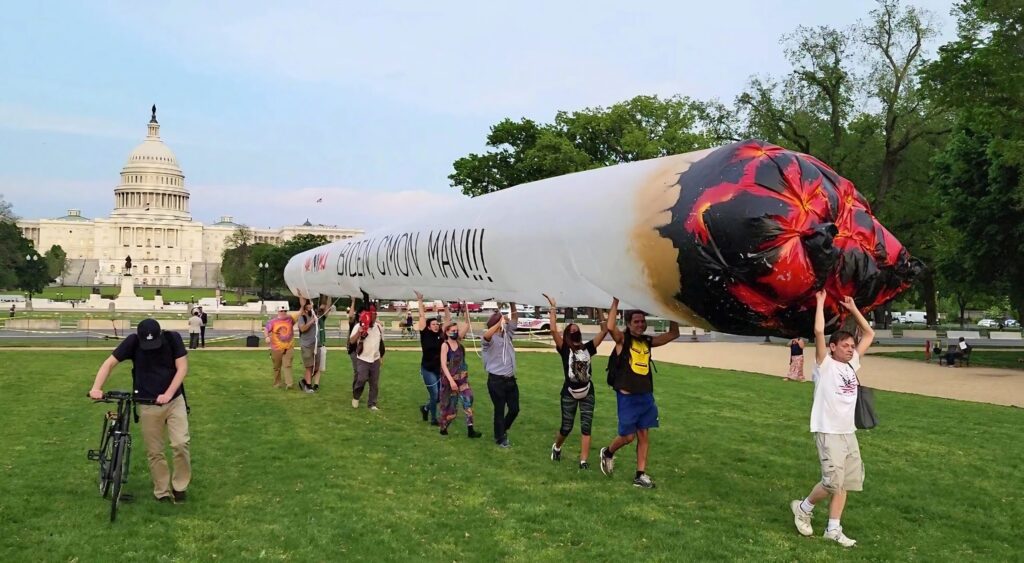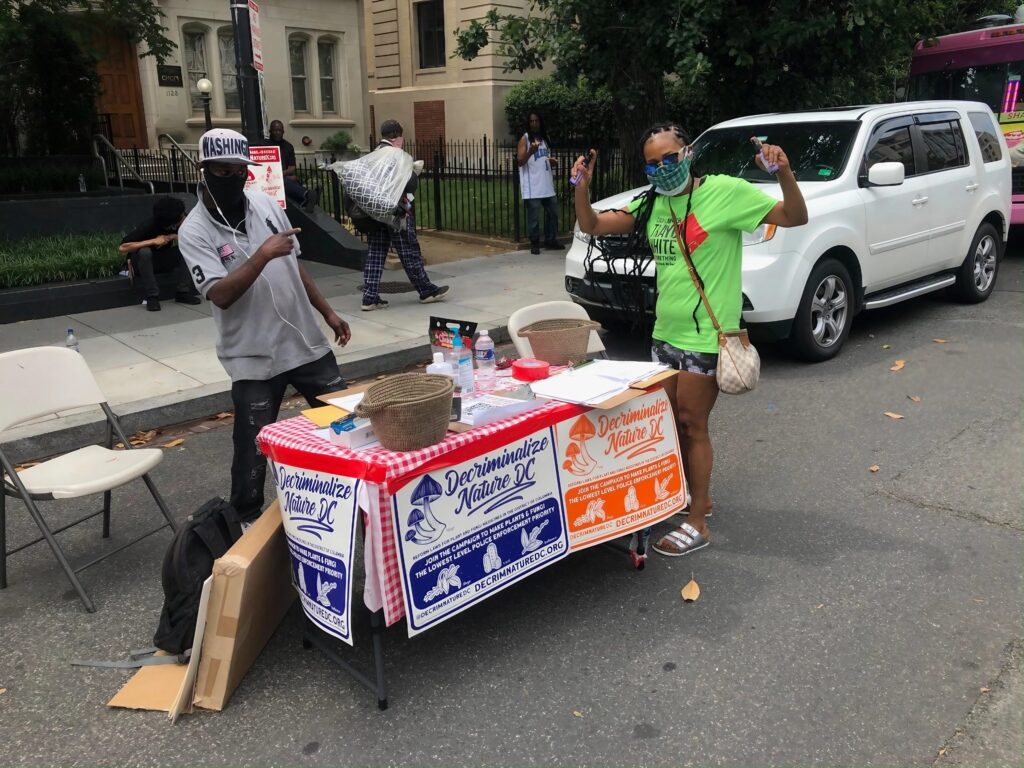There is official Washington you see on TV, which features the National Mall, Congress, and the White House, and there is unofficial Washington, which is home to 700,000 citizens who are denied the ability to electorally participate in official Washington. Mintwood Strategies has carved out a niche in the media landscape of both official and unofficial Washington. In a ven diagram of activism and public relations, Mintwood Strategies holds space in the small area where they overlap. “Traditional public relations is about getting a story into the media. From drafting a press release to calling reporters and pitching the story to the hope that the story gets picked up by journalists. But activists don’t always get their story in the press,” says Adam Eidinger, the founder of Mintwood Strategies. “They toil away at changing the world, but often are overlooked and their efforts ignored. Mintwood Strategies began as a lesson on how to upend traditional public relations: be an activist first and the media will follow,” concludes Eidinger.
From anti-globalization demonstrations to drug policy reform to raising the minimum wage to having a giant Burning Man-inspired bonfire on the grounds of the Washington Monument, Mintwood Strategies has navigated the bureaucracy of electoral politics, National Park Service, and over time, drafted and passed more local laws via ballot measures than any single firm in unofficial Washington. Axios recently put Mintwood Strategies’ founder Adam Eidinger on the top of their list of unofficial Washington’s power players.


Less than half of the states in the United States allow their citizens to create their own laws, overturn laws, or remove elected officials from office. Mintwood Strategies is the only organization in Washington that successfully worked to do all three.
• 2014: Mintwood Strategies spearheaded the first law on the East Coast to legalize the cultivation, distribution, and possession of cannabis with ballot initiative 71
• 2018: Mintwood Strategies was able to oversee the collection of over 35,000 signatures from registered DC voters in 6 days in order to thwart the DC Council’s attempt to overturn a ballot initiative 77
• 2019: Mintwood Strategies organized the recall of a corrupt DC Councilmember, who ultimately resigned
• 2020: Mintwood Strategies was behind the first law on the East Coast to decriminalize entheogenic plants and fungi with Initiative 81
• 2022: Mintwood Strategies facilitated the passage of Initiative 82, which will eliminate the subminimum wage for tipped workers by 2027
All of the ballot initiatives Mintwood Strategies instigated passed by at least 70%. This could not be done without a thorough understanding of the laws, the aptitude to organize workers, the ability to fundraise, and the wherewithal to raise awareness about these issues through earned media.

The overarching strengths of Mintwood Strategies are creativity, persistence, and patience. Doing the same style of protest, demonstration, or press conference in a town where these happen on a daily basis will not yield many news articles. In a crowded media landscape, creativity is the best way to generate press. From hoisting a giant 51’ inflatable joint outside of the White House to giving away over 10,000 joints at Donald Trump’s inauguration to organizing “Joints For Jabs” in New York City and Washington, DC, Mintwood Strategies has excelled in creative approaches to raise awareness about important social issues.
One creative demonstration will not change entrenched interests, but photos and videos taken at that demonstration can be a persistent reminder that support for reform exists. Today every news article about cannabis and Congress or the White House features a photograph from a demonstration organized by Mintwood Strategies over the last decade. From a cannabis flag waving over the White House to the aforementioned 51’ joint displayed across the National Mall, the stock photos Mintwood Strategies has generated live on as a constant reminder.
With over 25 years of experience in Washington, DC, Mintwood Strategies knows that nothing happens overnight. Change takes years, sometimes generations. Patience is the final key to Mintwood Strategies success.

In 2002, shortly after Dr. Bronner’s Magic Soaps switched to using hemp oil in their infamous soap, the George W. Bush administration sought to remove hemp oil from all food and body care products. Mintwood Strategies organized a bagel taste test to show that the U.S. government allows Americans to eat poppy seeds, which contain trace amounts of opiates, so why not allow hemp? It was successful and hemp was allowed to remain in food and body care products, but American farmers were prevented from growing hemp. In 2009, Mintwood Strategies organized a planting of hemp seed on DEA’s lawn in Arlington, Virginia, resulting in arrests and numerous news articles. Three years later, with the help of Mintwood Strategies, the CEO of Dr. Bronner’s Magic Soaps locked himself inside of a custom built jail cell with twelve hemp plants. It took the fire department three hours to extricate him from the jail, but landed the action on the front page of the Washington Post’s Metro Section. Two years later, in 2014, Congress legalized the domestic cultivation of hemp in the United States and now Dr. Bronner’s Magic Soaps is able to utilize hemp seed oil grown by American farmers. Without a lot of patience, persistence, and creativity, hemp might still be illegal in the United States.
Sometimes the work within unofficial Washington bubbles up to official Washington, but this can only be done by those skilled enough to do the hard work. Mintwood Strategies is one of those groups.














